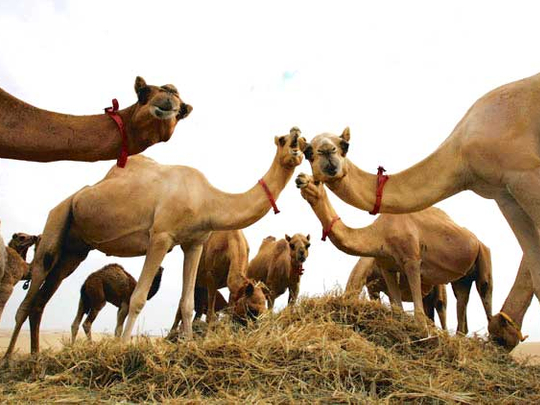
Abu Dhabi: Researchers at UAE University (UAEU) are working on producing a new halal-friendly source of gelatin, with camel skin being looked at as a potential alternative.
Gelatin is currently used in a wide range of products, including foods, cosmetics, and pharmaceuticals. The most common source of extracted gelatin comes from pig skin, bovine hides, and bovine bones. The research by UAEU could lead to the potential opening of a whole new market, as there are currently no gelatin products made from camel skin.
“Our project is aimed at identifying an alternative raw material for gelatin, and more specifically for halal gelatin. At the moment, the source of most gelatin products comes from pig skin, and for the Muslim community, pork is not halal, so therefore there is a need to look for a halal source that can be produced,” said Dr Sajid Maqsood from the Department of Food Science at UAEU.
What is gelatin?
Gelatin is a protein obtained by boiling skin, tendons, ligaments, and/or bones in water. However, there is a product called “agar agar” that is sometimes marketed as “gelatin,” but it is vegetarian and is derived from a type of seaweed. Chemically, gelatin is a mixture of peptides and proteins produced by partial hydrolysis of collagen extracted from the skin, bones, and connective tissues of animals.
“So we started exploring camel skin as a possible source for gelatin. At first we did a thorough scientific study on the matter, and then the next stage was to optimise the method of extraction for the gelatin, which was very challenging, and took us one year to do,” he added.
“Camels are unique animals, they can live in hot climates, and therefore their skin is different than other animals. That is where the challenge and difficulty came from — finding a right and different method of extracting the gelatin,” he said.
Maqsood said that gelatin from camels provided a very good opportunity for the UAE and the region, as camels are widely available in the area.
“The results from our research have been very good, and so it will be up to companies or industries if they want to commercialise and use camel skin to produce gelatin.
“It is a very good opportunity and will certainly help the halal market in the region, and with an abundant number of camels that are readily available, the demand can be met,” he added.
Maqsood said that the research is currently planning to improve the quality of the camel-extracted gelatin, and do comparative studies between camel gelatin and the current gelatin products that are available.
“Our next plan is to do studies comparing the camel-sourced gelatin with the ones that are currently used in the market. We also want to improve the quality of gelatin from the camel skin, so we are still doing work, and hope for further progress.”












